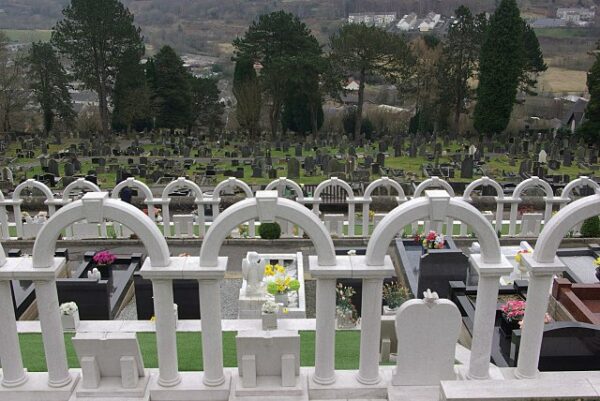The Aberfan Disaster, a haunting chapter in the annals of British history, unfolded on October 21, 1966, in the small mining village of Aberfan, South Wales. The disaster was caused by a catastrophic collapse of a colliery spoil tip, a large pile of mining waste, which slid down the mountainside and engulfed the Pantglas Junior School and nearby houses. 144 people died, including 116 children who were attending class.
The catastrophe began when the colossal waste tip, composed of discarded mining debris and slurry, succumbed to the saturated ground, descending like an avalanche onto the Pantglas Junior School. This sudden and ferocious onslaught buried the school, trapping children within the debris and leaving rescuers to grapple with an unimaginable rescue operation. The scale of devastation was both overwhelming and horrifying, marking a tragic moment in the reign of Queen Elizabeth II.
The aftermath of the Aberfan Disaster was marked by grief, sorrow, and collective shock. The entire country mourned with the bereaved community, and an outpouring of support and sympathy emanated from all corners. The heroic efforts of rescue teams and volunteers who rushed to the scene served as a poignant testament to human resilience in the face of tragedy. The incident galvanized a nation, inspiring a widespread demand for accountability and justice.
Queen Elizabeth II waited eight days before visiting the site, believing that an earlier visit would hinder rescue operations, but the delay caused many in the press to call her callous. “During her 70 years on the throne,” writes the BBC, “the Queen was witness to countless tragedies around the world….Her reaction to the disaster in Aberfan was said to be one of the biggest regrets of her reign.
While Prince Philip, Lord Snowdon and the then prime minister Harold Wilson visited the scene the following day, the Queen waited eight days before going to the village near Merthyr Tydfil, arriving to comfort the community shortly after a mass funeral had taken place.
The delay in going to Aberfan attracted some criticism and years later the Queen’s former private secretary, the late Lord Charteris, said he felt he had given her poor advice.
‘We told her to stay away [from Aberfan] until the preliminary shock had worn off,’ he said, adding that it was the biggest regret of her reign.”
The Aberfan Disaster had far-reaching implications. In the wake of the tragedy, the British government implemented stringent mining regulations and safety measures, aiming to prevent such a catastrophe from occurring again. This heart-wrenching event remains a stark reminder of the human and environmental costs of coal mining, and a testament to the importance of vigilance and adherence to safety standards in industrial practices. Aberfan stands as a somber yet enduring chapter in the ongoing effort to ensure the safety of mining communities across the United Kingdom.






